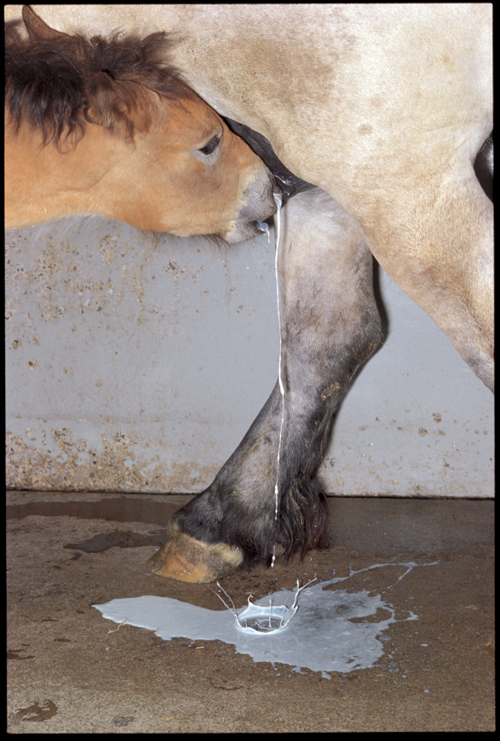Difference between revisions of "Equine Internal Medicine Q&A 10"
Ggaitskell (talk | contribs) |
|||
| (3 intermediate revisions by one other user not shown) | |||
| Line 17: | Line 17: | ||
|a2= | |a2= | ||
Inspection of the mouth and/or endoscopic examination of the nasopharynx and soft palate. | Inspection of the mouth and/or endoscopic examination of the nasopharynx and soft palate. | ||
| − | |l2= | + | |l2=Cleft Palate#Diagnosis |
|q3=What is the differential diagnosis? | |q3=What is the differential diagnosis? | ||
|a3= | |a3= | ||
| Line 31: | Line 31: | ||
Saving the animal for breeding is unwise, since this condition can be hereditary. <br><br> | Saving the animal for breeding is unwise, since this condition can be hereditary. <br><br> | ||
If surgical correction is considered as an option, the procedure should be performed as soon as possible, preferably at one day of age. The foal should be treated to prevent aspiration pneumonia for at least five days after surgery. | If surgical correction is considered as an option, the procedure should be performed as soon as possible, preferably at one day of age. The foal should be treated to prevent aspiration pneumonia for at least five days after surgery. | ||
| − | |l4= | + | |l4=Cleft Palate#Treatment |
</FlashCard> | </FlashCard> | ||
Latest revision as of 15:20, 22 August 2011
| This question was provided by Manson Publishing as part of the OVAL Project. See more Equine Internal Medicine questions |
You are asked to examine a 10- day-old Coldblood filly. When sucking from the dam, the filly constantly loses milk through both nostrils. The foal appears otherwise to be clinically normal.
| Question | Answer | Article | |
| What is your tentative diagnosis? | Cleft palate (palatoschisis). |
Link to Article | |
| How would you confirm the diagnosis? | Inspection of the mouth and/or endoscopic examination of the nasopharynx and soft palate. |
Link to Article | |
| What is the differential diagnosis? |
|
Link to Article | |
| What is the prognosis, and how could this foal be treated? | Although there have been a few favourable reports of the surgical repair of cleft palate, the prognosis is poor. Even if palatoplasty is successful, this will not restore athletic capability and the surgery is no more than a salvage procedure. |
Link to Article | |
